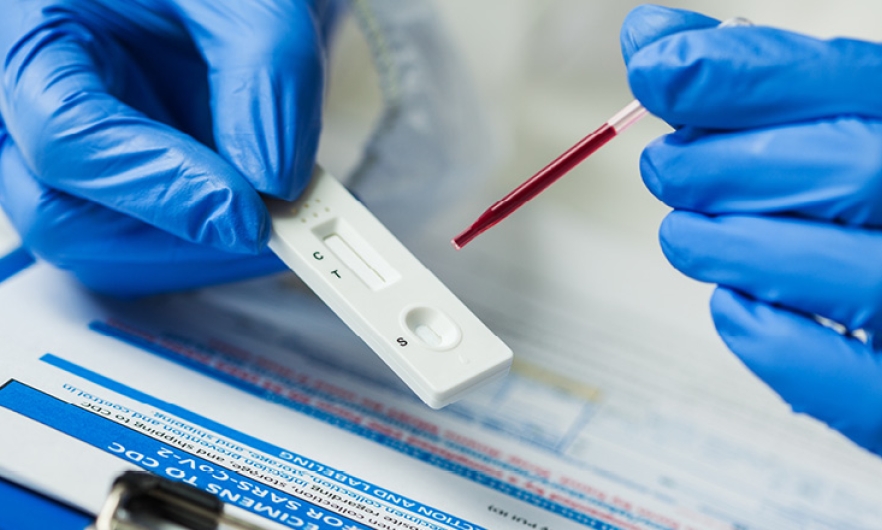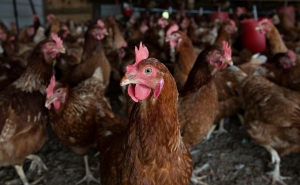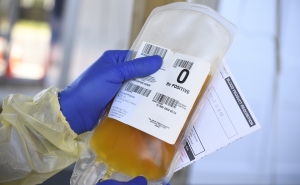Variants, Vaccines and What They Mean For COVID-19 Testing
Emerging SARS-CoV-2 variants and the COVID-19 vaccination campaigns have increased complexity for COVID-19 testing.

BY RACHEL WEST, GIGI KWIK GRONVALL, AND AMANDA KOBOKOVICH
A few months ago, concerns about COVID-19 diagnostic testing were mostly a matter of test availability and whether the results would be returned in soon enough to make a public health difference.
Now, emerging SARS-CoV-2 variants and the COVID-19 vaccination campaigns have increased complexity for COVID-19 testing. Many wonder if the tests will accurately diagnose infection with a variant strain of SARS-CoV-2, and whether vaccination will lead to inaccurate results with a diagnostic or serological test. The good news is that most diagnostic tests now in use will remain accurate with the variant strains, and vaccination should not interfere with diagnostic or antibody tests. However, maintaining diagnostic test accuracy is yet another reason why surveillance for new variants of SARS-CoV-2 is critically important, and why we should move forward with vaccination programs as expeditiously as possible. With concerns growing over testing results and how they relate to vaccinations, it’s important to understand the accuracy and relevance of testing.
SARS-CoV-2 Variants and molecular diagnostics: are they still accurate?
SARS-CoV-2 variants are circulating widely in at least 37 countries, including the United States. Particular variants of concern, which appear to be more transmissible, include B.1.1.7, originally sequenced in the UK, and 501Y.V2, originally sequenced in South Africa. The emergence of these variants raises concerns about molecular diagnostic tests that may be used to identify SARS-CoV-2 infection; if the variant has a different genetic sequence in the area probed by the test, it will not diagnose SARS-CoV-2, potentially leading to a false negative result. In fact, the initial identification of B.1.1.7 was partially due to a diagnostic test issue, called S-gene target failure. This technical failure raises the question of the ability of currently used molecular diagnostics to reliably identify future SARS-CoV-2 infections. Both variants of concern have mutations in the spike protein, including position N501Y in both and Δ69/70 in B.1.1.7. The FDA has already issued warnings of potential target failures in the following tests: the TaqPath COVID-19 Combo Kit by Thermo Fisher Scientific, the Accula SARS-CoV-2 test by Mesa Biotech, and the Linea COVID-19 Assay kit by Accula.
Because of the diversity and breadth of tests currently available, most diagnostic tests can still be reliably used to diagnose the variant strains. Based on publicly available data and tracking of the 246 molecular diagnostics which have FDA Emergency Use Authorization (EUA), the majority (85.4%) of diagnostic tests have targets other than the spike gene, so they should still be effective for these variants, and would not produce a “failed” test if the infection is caused by a variant with mutations in the spike gene. Of the remaining 14.6% of tests, 7.3% have multiple targets within the SARS-CoV-2 genome in addition to the spike gene, such as ORF1ab and N genes, so they should continue to yield accurate results. Furthermore, the majority (90.1%) of rapid antigen tests with EUA detect nucleocapsid protein, rather than spike protein, so they should be unaffected. It should be noted that 5.7% of tests have no clearly stated genomic target, but may have that stored as proprietary information. Of the 4 tests which target S gene alone, it is not yet clear if these tests would identify an individual infected with a variant; primer sequences should be compared to the variant sequences by the manufacturer to screen analytical sensitivity. Moving forward, it will be vital to watch for notices from the FDA regarding the efficacy of the EUA diagnostic tests, and to follow up on test failures to investigate potential variants’ impacts. Organizers of COVID-19 testing centers must remain informed of any potential changes to test efficacy that might affect their operations or purchasing agreements.
The current diversity of molecular diagnostics targets bodes well for the ability to identify SARS-CoV-2 infections of future variants, but also underscores the importance of widespread, regular sequencing of clinical samples. CDC is increasing surveillance of SARS-CoV-2 samples to understand the spread of the current variants as well as future variants. Test target failure or negative results with clinical symptoms should be accompanied by sequencing to understand if failures are due to sequence divergence. Cataloguing the genomic targets of SARS-CoV-2 diagnostics will be important to understand testing limitations now, as well as in the future should new variants arise.
After vaccination, will the accuracy of diagnostic and serology tests change?
Vaccination against SARS-CoV-2 will not result in a positive diagnostic test. The Moderna and Pfizer/BioNTech vaccines consist of non-replicating mRNA, so the maximum level of SARS-CoV-2 specific mRNA a vaccine recipient will have is the small amount present in the vaccine. In a SARS-CoV-2 infection, the virus replicates so that mRNA levels increase to much higher levels and persist for weeks. In addition, both EUA vaccines contain mRNA specific to the spike gene of the SARS-CoV-2 virus. The majority of diagnostics target multiple genes other than spike, if they target spike protein at all. Therefore, vaccination with an mRNA vaccine will not result in a positive diagnostic test.
People who have been vaccinated may be interested in getting a serology test, to see if the vaccine “worked,” but a vaccinated person is very likely to get a negative result from a serology test, even if the vaccine was successful and protective. Serology tests are typically used to determine whether a person has been exposed to SARS-CoV-2 in the past and developed antibodies against the virus. Different serology tests detect antibodies to different parts of the virus, but after vaccination with Pfizer and Moderna vaccines, the antibodies formed will only be to one part of the virus: the spike protein. Some serology tests do not detect antibodies specific to spike protein at all, while others are specific for antibodies that target regions within the spike protein (like the receptor binding domain, or RBD). For example, the Roche Elecsys Anti-SARS-CoV-2 S assay detects antibodies to spike RBD, while the the Platelia SARS-CoV-2 Total Ab assay from Bio-Rad detects antibodies to the nucleocapsid protein. Commercially available serology tests should not be used to seek a positive antibody result after vaccination given the differences in vaccine targets, and current EUAs do not authorize individual serology testing for measuring vaccine efficacy. Therefore, a negative serology test after vaccination does not necessarily mean the vaccine failed and reinforces that serology tests should not be used for this purpose. To understand if vaccination stimulated an antibody response, a test specifically designed for the antibodies of interest would need to be used.
While the diagnostic testing news is good for now-- infections by current SARS-CoV-2 variants are likely to be detected by tests on the market-- it is important to increase surveillance and monitor the emergence of future variants, which may be more problematic. Thankfully, the Biden administration’s plan includes expansion of testing and increased genomic surveillance--two goals that can work hand in hand to monitor SARS-CoV-2 spread and inform public health interventions. It will be vital to implement surveillance and test performance monitoring quickly, so that emerging variants that may impact therapeutics and vaccines are detected and addressed in real time.
Rachel West, PhD, is a post-doctoral associate with the Center for Health Security and the Johns Hopkins Bloomberg School of Public Health Department of Molecular Microbiology and Immunology.
Gigi Kwik Gronvall, PhD is a senior scholar and associate professor with the Center for Health Security and the Johns Hopkins Bloomberg School of Public Health Department of Environmental Health and Engineering.
Amanda Kobokovich, MPH is a senior analyst and research associate with the Center for Health Security and the Johns Hopkins Bloomberg School of Public Health Department of Environmental Health and Engineering.





